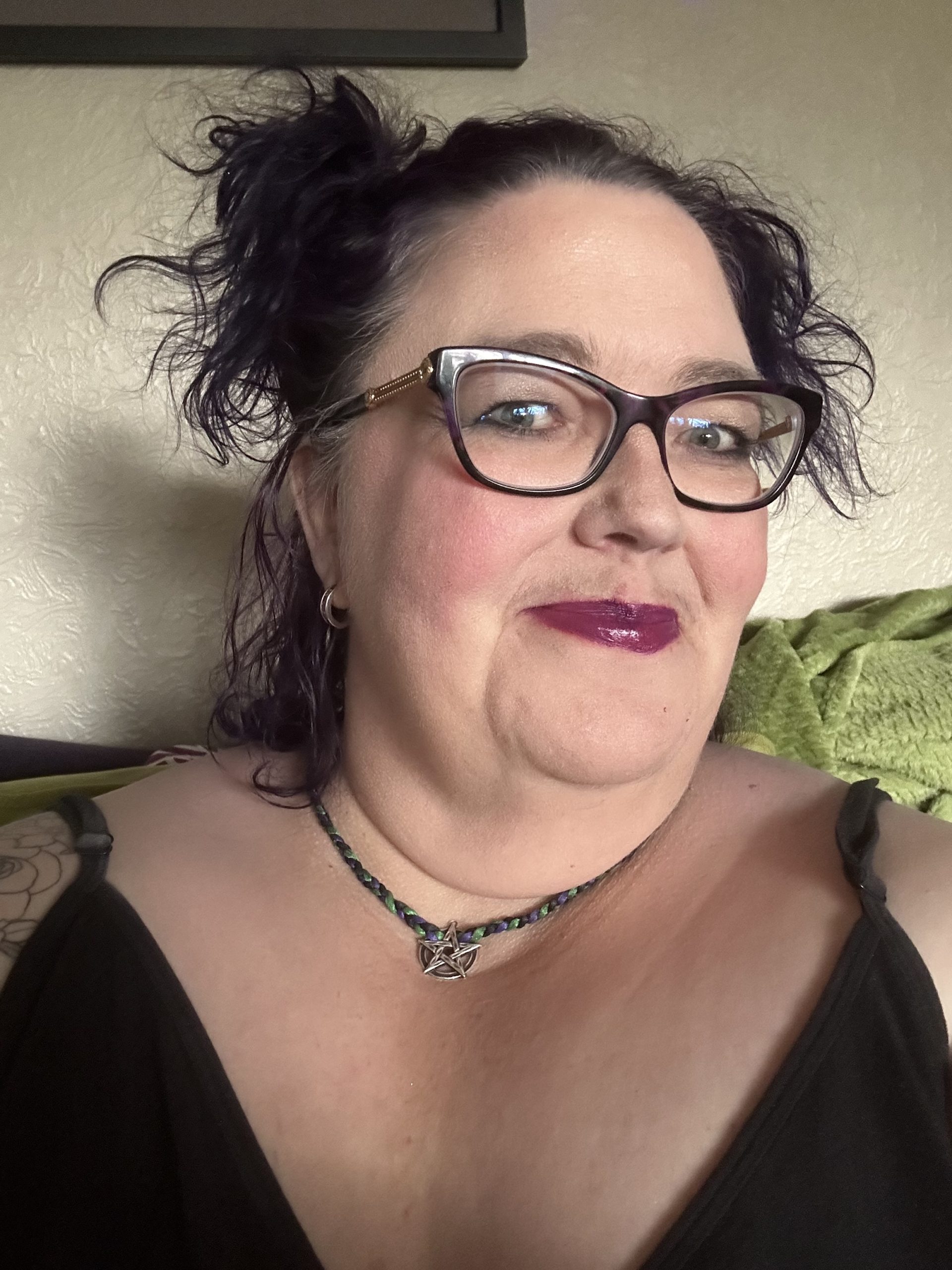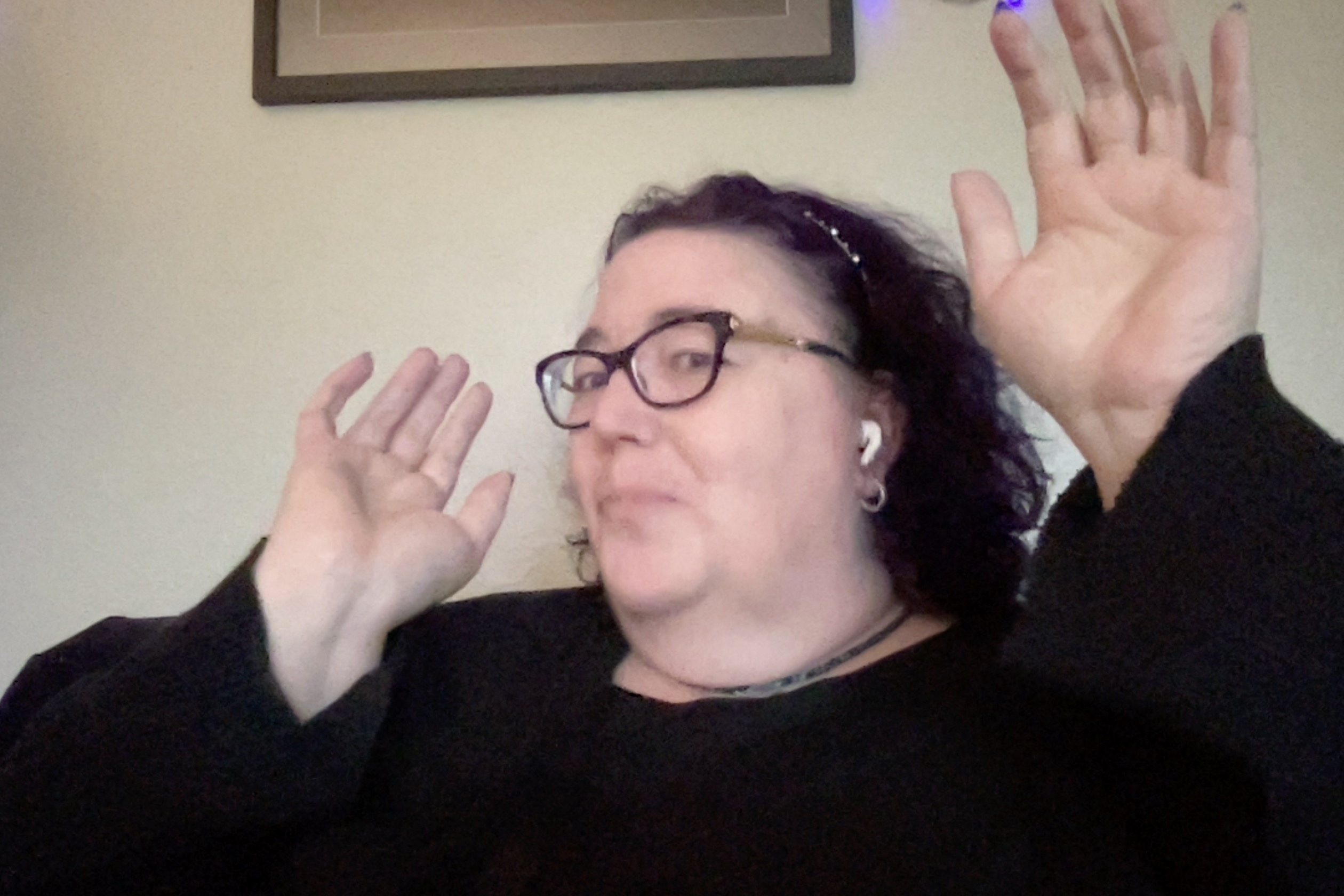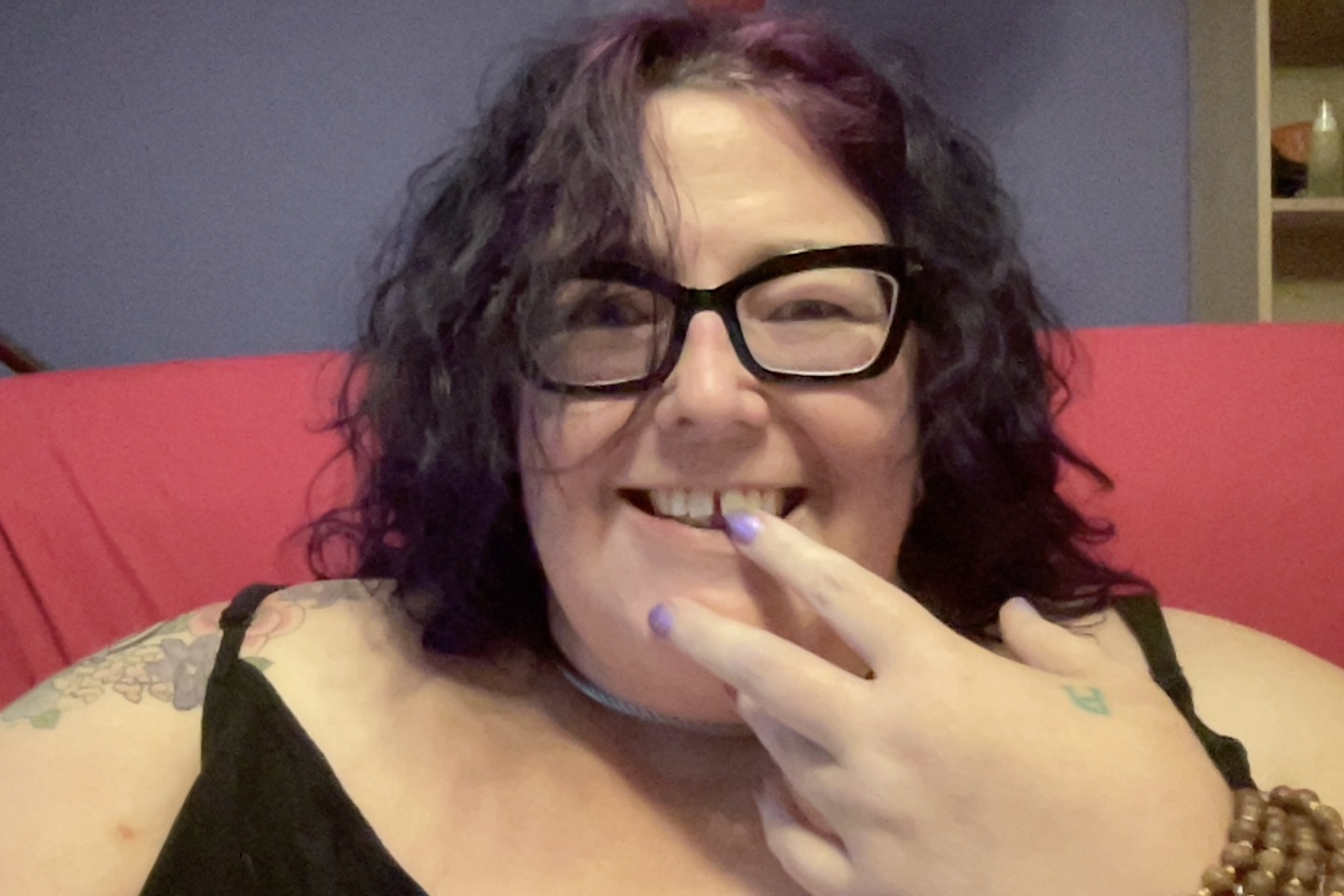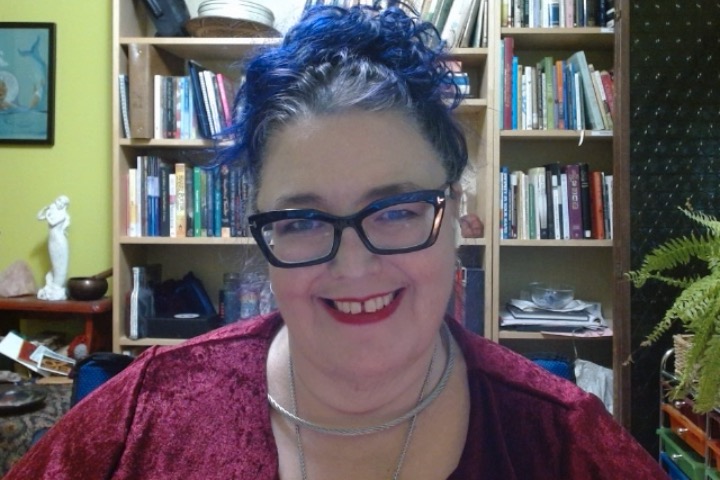There are a lot of places where fat liberation and disability liberation intersect in my life. Where size justice and disability justice and welcome swim together with my identities and the way those identities mix with the world. I mean, I have other identities too. I was assigned female at birth and identify as a woman, I’m queer, polyamorous, and neurospicy. Disability and fatness definitely come together a lot of the time.
18 months ago I couldn’t walk at all. I started taking myself to coffee shops (like the one from which I write to you now) in the last month. I am reclaiming, bit by bit, ground I steadily lost over ten years and then all of a sudden in that one terrible year. I will never be 40 again, and I will never not be fat, but I am doing more physical things now than I have done in at least four years. I have hope and plenty of it. Nevertheless, no matter how much progress I make, there are places I still struggle, and places I’m likely to continue to struggle.
But take some events of this past week. I was just talking with someone the other day (actually before I learned that this week is Fat Liberation Week) about going someplace with him, and I heard myself say, “Yeah, I’ll call and check the place out.” I said it, and as I said it, I thought, “I really wish my (thin-bodied) friend would do this for me.”
Why did I wish that and what am I talking about? I’m talking about the fat/disabled experience of (lack of) access.
And I’m talking about small- and able-bodied privilege.
Fat People Calling Ahead
I needed to “check the place out” because I needed to know whether there was room and access for me. I needed to know whether I could get in the building, how difficult it might be, what assistance I might need, and if I did get in, how far I’d have to walk to the actual event. I needed to know, if I could get to the event, whether there were seats I could fit in or on. And I needed to know, if there were seats I could fit on, how likely was it that I could sit comfortably in them for long enough to make a pleasant visit with friends feel like a pleasant visit with friends.
As it turned out, the owners said there were no steps. The space was accessible and size-friendly. (Such a strange phrase, “size-friendly,” isn’t it?) I was delighted and excited to go.
I spoke to another friend before I went, and she said, “Actually, you need to get there early to get close parking (it often gets full), the ground is uneven in the area before the door, and there’s one step in and one step out to the back outdoor space.”
Friends, I have news for you: If someone asks you whether there are steps to an event, then one step counts as a step. In my case, it’s not a deal-breaker, but I did my best, I asked about steps, and I got the answer, “There are no steps.”
Thin Privilege is Not Seeing the Steps
I don’t think the owner lied to me. I don’t think the venue owner had anything but the most welcoming feelings in their heart. The owner did not experience their venue as having steps. Because there wasn’t a set of stairs, they didn’t experience the venue as having stairs.
For me, though, when I ask, “Are there any steps to get into the venue?” I mean, “Are there any steps to get into the venue.” One step means I need a little assistance. It’s not like a whole flight of stairs or four or five outdoor steps, which would right now be a dealbreaker for my attendance, but it’s a step. It’s something I have to think about.
And that, combined with the uneven ground, the unknown parking, and the questions in my mind about what else may have been left out from the descriptions I got, led to my not going to the event. I really wanted to go. I still want to go to one of the events later in the summer, but I now know that I’ll have to “gird my loins” and prepare with time, assistance, Ativan, and determination before I even attempt the entry.
Fat and Disability Welcome Is Doing the Work First
How might this have gone differently? “Presumptive Welcome” comes to mind, a phrase my friend and teacher CB Beal uses when we do our best to make spaces accessible to as many folks as we can ahead of folks having to do the labor to ask, explain, and advocate for themselves. And not only making our spaces accessible and safe, but telling folks what the situation is. Few of our arrangements will be perfect for everyone, but just being up-front about what our spaces allow/have in them it super belpful.
Knowing there was one step into the space would have been fine. I can, with someone spotting me, feel okay about getting up onto one step. Learning from the owners that there was some uneven ground I’d have to navigate would have been great.
Another thing that would have been lovely is if someone else had known what questions to ask and had done the work of making that call for me. As it was, I did find out in time, through a chance conversation with another person who’d been there before. But I’d like not to rely on chance, you know?
I’d like to be able to rely on other people having a sense of what I might need. When a friend asks me out to an old movie theater, I don’t want to have to say, “Oh, do they have spaces for chairs without arms?” I want that friend to have thought about it before they invited me to something fun I probably can’t fit into. Or, also good, for the friend to say to me, “I saw this movie I think you might enjoy. What would you need to be able to make that happen?” The inquiry, the compassionate curiosity about my fat body’s needs would go a long way. Otherwise, you’re not asking about me; you’re asking about an idea of me that doesn’t live within/isn’t a fat, disabled body.
I’d like to be able to rely on compassionate curiosity, welcome, and care. Can you help make that possible?



